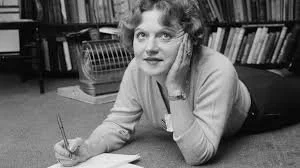The Best Horror of the Year Volume 9 was published this Tuesday and while I’m only a short way into the stories it contains, I feel pretty confident recommending it to anyone who enjoys weird and unnerving tales. Not only have I been reading and loving the Best Horror of the Year series for almost as long as they’ve been coming out, but I’ve been following the series editor, Ellen Datlow, since I was a preteen, finally getting my turn with the tattered copy of the most recent OMNI magazine my family was passing around. Datlow’s picks for OMNI is where I first fell in love with short fiction and buying her dark anthologies as an adult has never let me down.
Editor Ellen Datlow (photo credit Greg Frost)
As a reader, I’ve learned that when I’m hunting down the best short fiction to load into my imagination, finding an editor whose tastes I appreciate will lead me to the primo goods more often than just seeking out the names of the same dozen authors over and over again. I still find those authors in the editor’s anthologies – they are reading and enjoying these people, too – but I also find surprises and innovations I never would have thought to look for on my own. So when I’m looking for stories from the darker literary corners, and I usually am, the editor I look for first is Ellen Datlow.
No one is reading more dark fiction than Ellen Datlow. And her knowledge of the horror genre is deep. Deeper than mine or yours. While her day job from 1981 through 2005 was as a science fiction editor (at OMNI from 1981-1998, Event Horizon 1998-1999, and then Sci Fiction 2000-2005), she edited the horror side of the Year’s Best Fantasy and Horror for twenty years starting in 1988. And she continues to indulge her love of horror with the Best Horror of the Year series. Pick up Volume 9, turn past the table of contents, and start reading her “Summation 2016.” The Summation is the most giving section of these volumes. You will quickly acknowledge and appreciate how eager Datlow is to share the depths of her reading with horror fans. Every year, the Summation details in 40 or so pages the most notable horror she has read in novels, magazines, anthologies, all the way down to chap books. She also discusses the year’s genre awards and nonfiction. It really is an incredible resource. I’ve often thought the Summation would be worth the purchase of the book even if the stories that followed were not so good.
In addition to her Best Horror of the Year anthologies, Datlow also edits themed anthologies. By their very nature, themed anthologies can be a little gimmicky and the stories inside a little more hit and miss than you would find in a Best Of anthology. For theme anthologies printing original work, an editor is reaching out to authors they enjoy and usually have worked with, and inviting them to write a fresh story based on the theme. I’ve often found theme anthologies of this type of solicited, original works to be disappointing. But with Ellen Datlow, given her editorial skill and extensive author connections to pull from, I’ve had much better luck and found some transporting experiences. I recommend checking out The Doll Collection, as well as The Children of Lovecraft. If you are interested in modern takes on the surreal world and characters Lewis Carroll’s Alice ran into, keep an eye out for Mad Hatters and March Hares, to be published this December.
Non-themed anthologies of original works are a harder sell to the marketing departments at publishers, so in 2012 Datlow experimented with Kickstarter and produced an exceptional anthology called Fearful Symmetries. It came out in May of 2014 and won the Shirley Jackson Award for Best Edited Anthology of that year.
Ellen Datlow has won scores of genre awards for her editing: Hugos, Shirley Jacksons, Bram Stokers, World Fantasies, and on and on. But as with an author, when readers approach an editor it becomes largely about an intersection of tastes. I trust Ellen Datlow so much because she likes the same kind of eerie stories I do. I am not an indiscriminate fan of horror. I am not interested in being shocked or grossed out. I want atmosphere and I want to be moved. Weirded out, sure, fine, that’s cool, but I most eagerly want to care. Ellen Datlow finds those kind of stories for me. If I see her name on something, I’ll usually buy a copy. I might be a little too quick to pull that trigger. I have been not too surprised to find I already have a copy on my shelf. And then somebody gets a present.













Cadwell Turnbull's new novel — the first in a trilogy — imagines the hard, uncertain work of a fantastical justice.